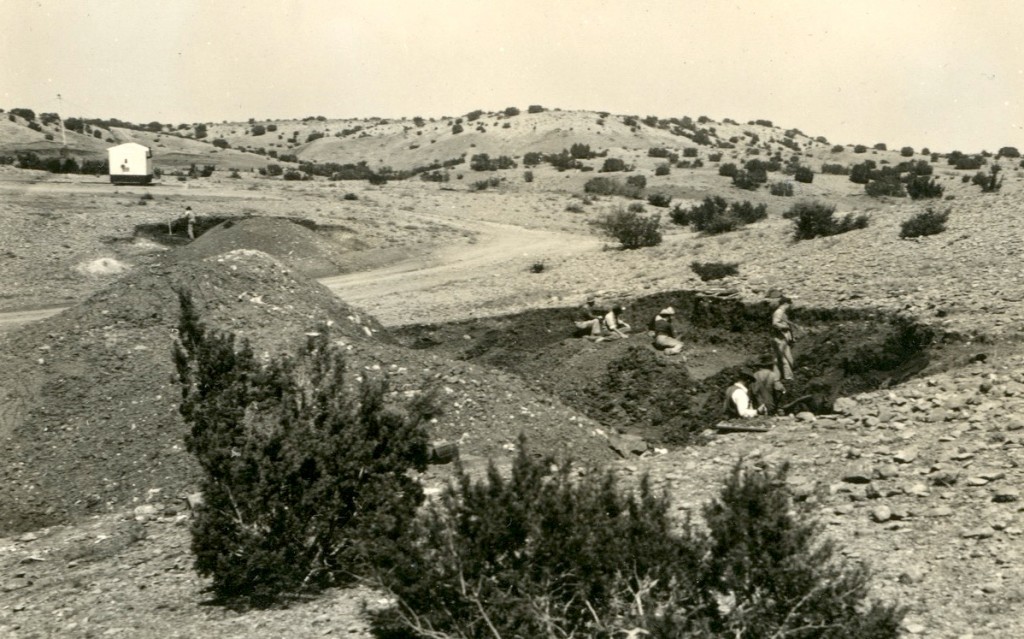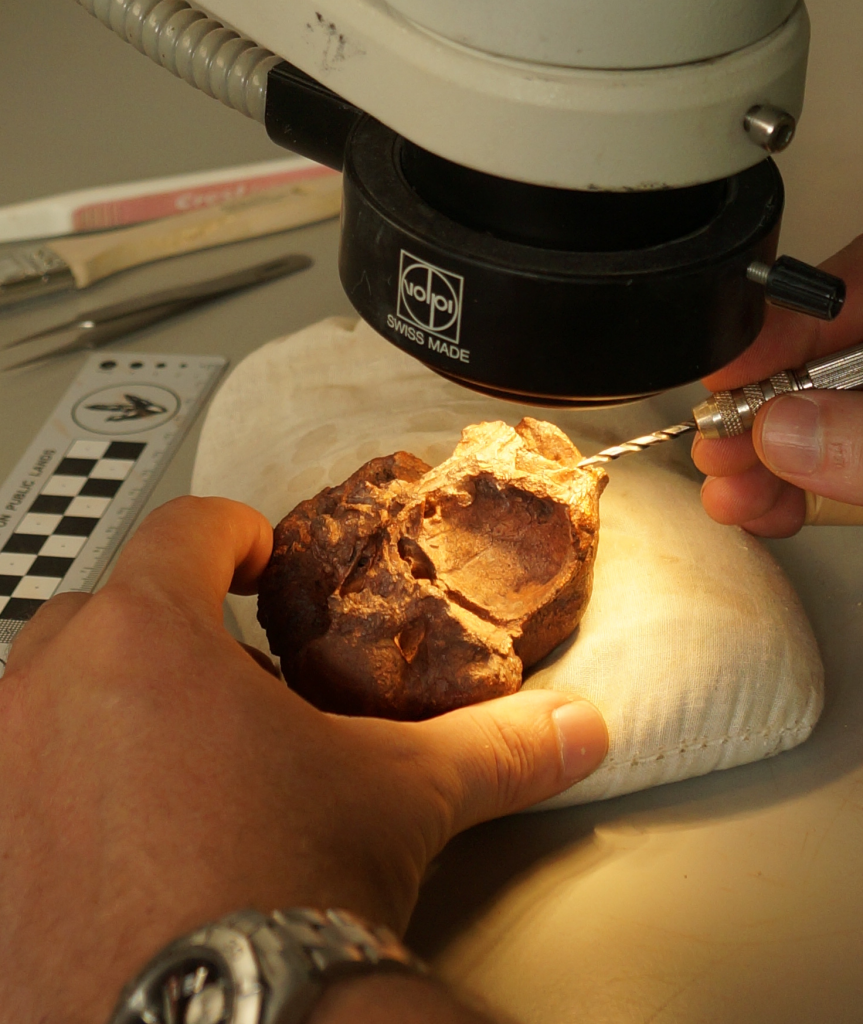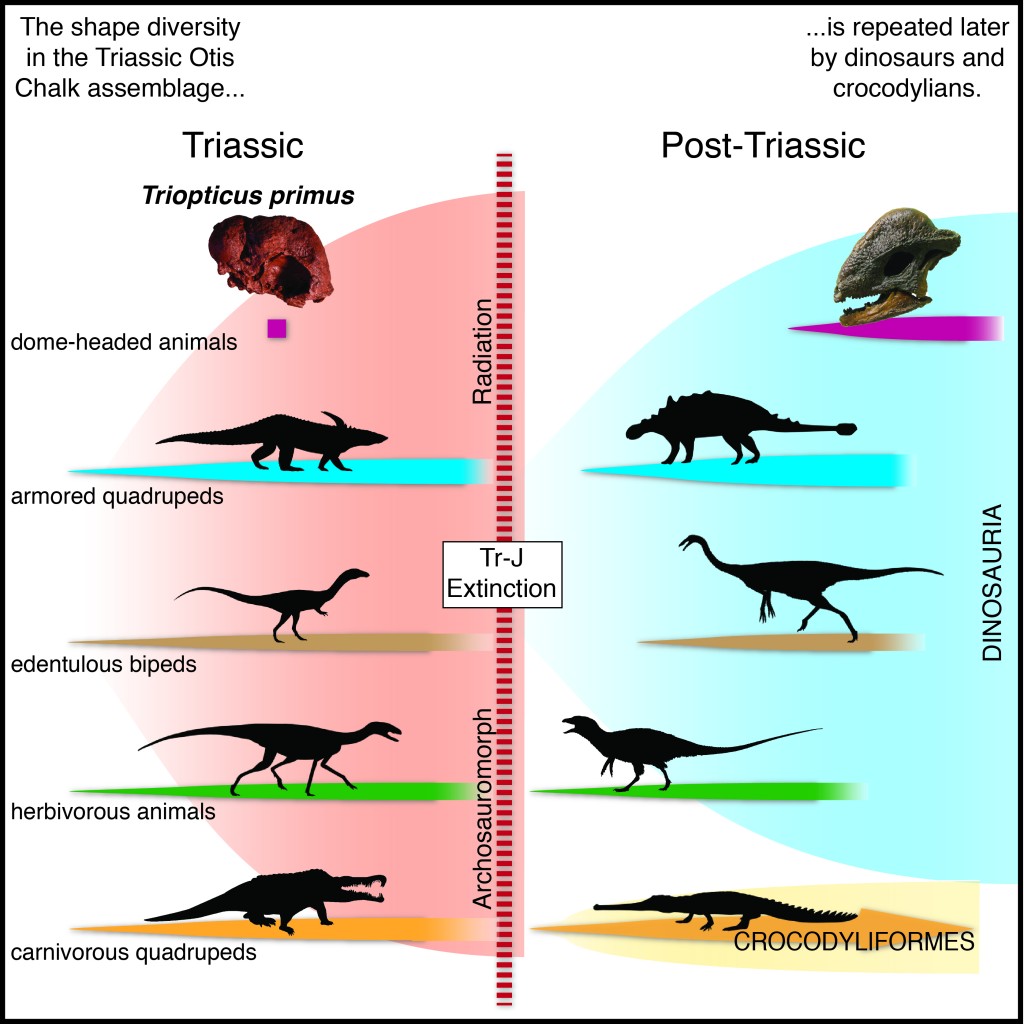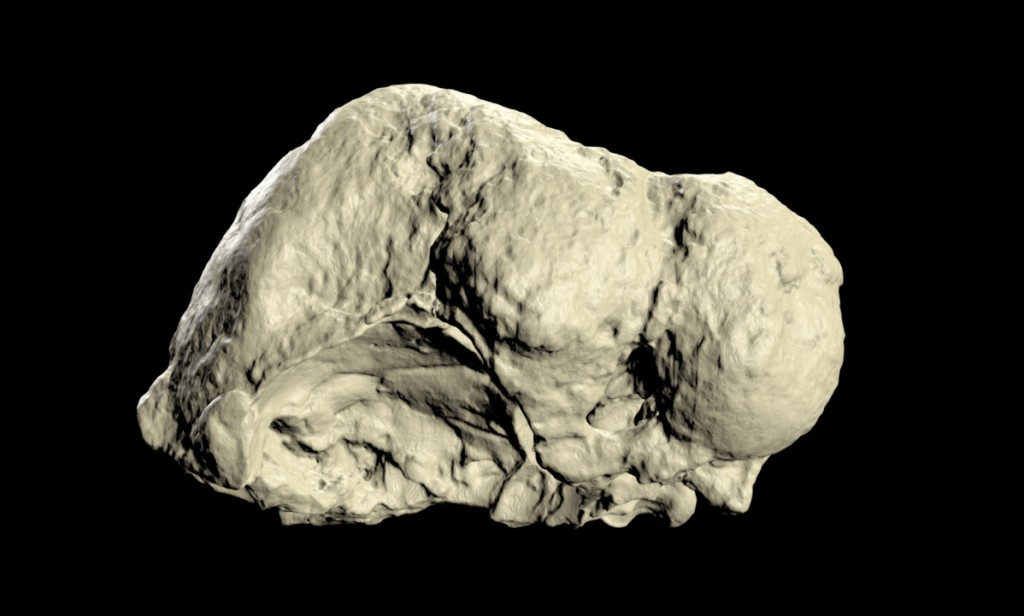Triopticus primus
A dome-headed stem-archosaur exemplifies convergence among dinosaurs and their distant relatives
Summary
We describe an exciting new species of extinct reptile (closely related to dinosaurs and crocodylians), Triopticus primus, as part of a diverse reptilian fauna from ~230 million years ago in Texas. This single group of reptiles preserves an extensive range of skeletal shapes and structures that each are re-evolved by dinosaurs and crocodylians millions of years later, presenting a striking example of convergent evolution among vertebrates.
Author home pages
Michelle R. Stocker, Sterling J. Nesbitt, Katharine E. Criswell, William G. Parker, Lawrence M. Witmer, Timothy B. Rowe, Ryan Ridgely, and Matthew A. Brown
This research paper was published on 9/22/2016 in the journal Current Biology
CT scan files can be downloaded from Morphosource.org

Otis Chalk Quarry 3, where Triopticus primus was excavated during the Statewide Paleontological and Mineralogical Survey of Texas, 1940. Photo credit- Archives of the Texas Vertebrate Paleontology Collections
WPA in Texas
The Works Progress Administration collected more than 10,000 specimens under the leadership of Dr. Elias H. Sellards between 1939 and 1942. An average of nine field crews at any given time collected fossil vertebrates across Texas. Approximately $300,000 was invested in this effort.
The WPA collection includes specimens from Permian and Triassic terrestrial sediments of North and Central Texas, from Tertiary terrestrial sediments of the Gulf Coastal Plain, from Tertiary terrestrial sediments of the Texas Panhandle, and from Pleistocene deposits throughout the state.
Much of this material has been prepared and published, and some of the finer specimens have been placed on display in museums around the country, including Texas Memorial Museum, the National Museum of Natural History (Smithsonian Institution), and the American Museum of Natural History.
Specimen images

The holotype skull of Triopticus primus during preparation under the microscope. Photo credit- Matthew Brown




